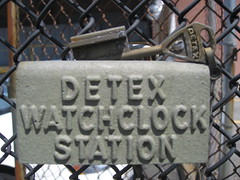We discovered that existing security cues are ineffective, for three reasons:
1. The indicators are ignored (23% of participants in our study did not look at the address bar, status bar, or any SSL indicators).
2. The indicators are misunderstood. For example, one regular Firefox user told me that he thought the yellow background in the address bar was an aesthetic design choice of the website designer (he didn’t realize that it was a security signal presented by the browser). Other users thought the SSL lock icon indicated whether a website could set cookies.
3. The security indicators are trivial to spoof. Many users can’t distinguish between an actual SSL indicator in the browser frame and a spoofed image of that indicator that appears in the content of a webpage. For example, if you display a popup window with no address bar, and then add an image of an address bar at the top with the correct URL and SSL indicators and an image of the status bar at the bottom with all the right indicators, most users will think it is legitimate. This attack fooled more than 80% of participants. …
Currently, I’m working on other techniques to prevent phishing in conjunction with security skins. For example, in a security usability class I taught this semester at Harvard, we conducted a usability study that shows that simply showing a user’s history information (for example, “you’ve been to this website many times” or “you’ve never submitted this form before”) can significantly increase a user’s ability to detect a spoofed website and reduce their vulnerability to phishing attacks. Another area I’ve been investigating are techniques to help users recover from errors and to identify when errors are real, or when they are simulated. Many attacks rely on users not being able to make this distinction.
You presented the project called Dynamic Security Skins (DSS) nearly one year ago. Do you think the main idea behind it is still valid after your tests?
Rachna Dhamija: I think that our usability study shows how easy it is to spoof security indicators, and how hard it is for users to distinguish legitimate security indicators from those that have been spoofed. Dynamic Security Skins is a proposal that starts from the assumption that any static security indicator can easily be copied by attacker. Instead, we propose that users create their own customized security indicators that are hard for an attacker to predict. Our usability study also shows that indicators placed in the periphery or outside of the user’s focus of attention (such as the SSL lock icon in the status bar) may be ignored entirely by some users. DSS places the security indicator (a secret image) at the point of password entry, so the user can not ignore it.
DSS adds a trusted window in the browser dedicated to username and password entry. The user chooses a photographic image (or is assigned a random image), which is overlaid across the window and text entry boxes. If the window displays the user’s personal image, it is safe for the user to enter his password. …
With security skins, we were trying to solve not user authentication, but the reverse problem – server authentication. I was looking for a way to convey to a user that his client and the server had successfully negotiated a protocol, that they have mutually authenticated each other and agreed on the same key. One way to do this would be to display a message like “Server X is authenticated”, or to display a binary indicator, like a closed or open lock. The problem is that any static indicator can be easily copied by an attacker. Instead, we allow the server and the user’s browser to each generate an abstract image. If the authentication is successful, the two images will match. This image can change with each authentication. If it is captured, it can’t be replayed by an attacker and it won’t reveal anything useful about the user’s password. …
Instead of blaming specific development techniques, I think we need to change our design philosophy. We should assume that every interface we develop will be spoofed. The only thing an attacker can’t simulate is an interface he can’t predict. This is the principle that DSS relies on. We should make it easy for users to personalize their interfaces. Look at how popular screensavers, ringtones, and application skins are – users clearly enjoy the ability to personalize their interfaces. We can take advantage of this fact to build spoof resistant interfaces.
